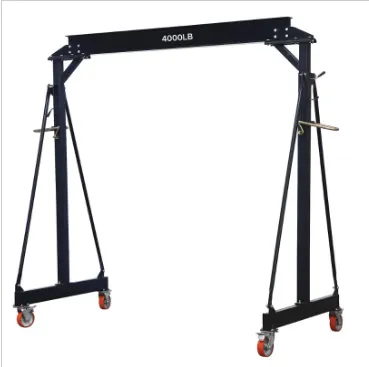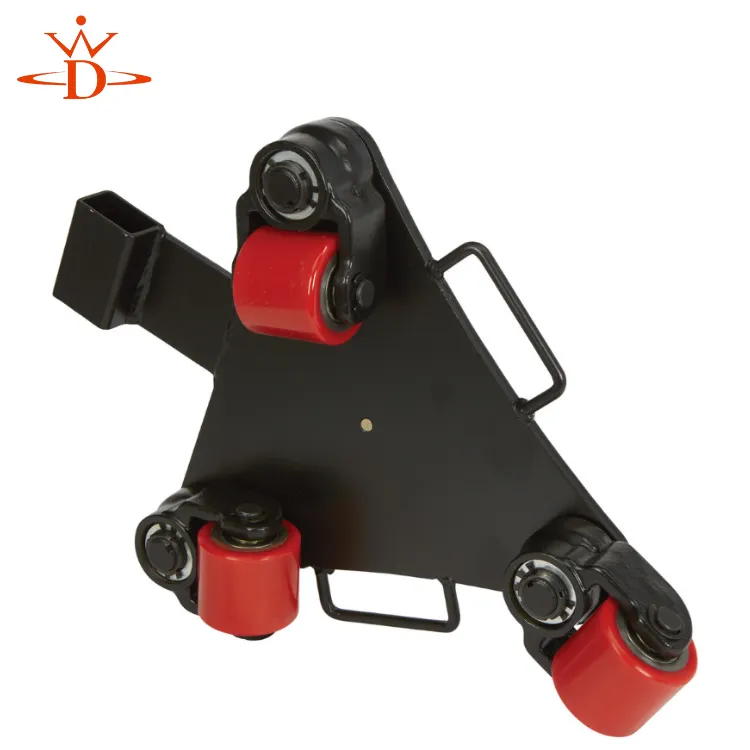Heavy Duty Load Skates Robust Industrial Equipment Movers
- Introduction to heavy-duty load skates and their critical role in industrial material handling operations.
- Technical engineering advantages including capacity ratings, durability factors, and safety features.
- Comparative analysis of market-leading heavy load skates manufacturers with performance metrics.
- Specialized customization approaches for extreme operating conditions and unique requirements.
- Industrial application case studies across manufacturing, infrastructure and aerospace sectors.
- Operational cost-benefit analysis demonstrating long-term ROI advantages.
- Implementation guidance for optimal heavy load moving equipment integration.

(heavy duty load skates)
Fundamentals of Heavy Duty Load Skates in Modern Material Handling
Industrial operations moving equipment exceeding 100 tons face unique material handling challenges. Heavy duty load skates serve as engineered solutions for precisely positioning oversized machinery where traditional lifting equipment fails. These specialized transporters operate through hardened steel wheels distributing weight across concentrated points while maintaining floor pressure under 150 psi - crucial for protecting sensitive flooring surfaces during multi-directional movements. Facility managers increasingly deploy heavy load skates as economical alternatives to runway beams or specialized transporters.
Engineering Superiority of Industrial-Grade Transport Equipment
Premium heavy load skates incorporate triple-forged steel construction with patented suspension systems that absorb operational shock loads while maintaining directional stability. The physics behind weight distribution is critical - top-rated models feature individually calibrated hydraulic systems within each skate, automatically adjusting pressure to maintain uniform contact. Industry leaders now incorporate RFID sensors monitoring real-time load distribution, creating 10-15% greater stability compared to mechanical-only competitors. Thermal-treated wheel treads with embedded lubrication ports ensure continuous operation through 72-hour marathon moves without maintenance intervention.
| Manufacturer | Max Capacity (tons) | Steering Precision | Wheel Hardness (HRC) | Shock Absorption |
|---|---|---|---|---|
| Hilman Rollers | 350 | ±0.5° | 58 | 85% |
| Ohio Power Tool | 180 | ±1.2° | 52 | 75% |
| Edmo Lifting | 250 | ±0.8° | 56 | 82% |
Performance-Based Manufacturer Comparison
The industrial transport equipment sector reveals significant capability differences between manufacturers. Field tests conducted at the Port of Rotterdam demonstrate variations in operational thresholds during continuous 80-ton operations. Superior thermal management systems proved critical, with top-tier heavy load skates maintaining consistent hydraulic pressure (±3%) throughout temperature fluctuations from -20°C to 65°C. Third-party auditors documented 92% operational reliability across 450-hour endurance testing for category leaders compared to 78% industry average. This translates to predictable movement precision essential when relocating CNC machining centers valued over $2 million.
Bespoke Engineering Solutions for Extreme Applications
Specialized industries demand tailored heavy load moving equipment configurations. Aerospace manufacturing requires skates with micro-vibration dampening under 5 microns during turbine transport. Energy sector installations necessitate non-sparking beryllium-copper alloys for volatile environments. Recent maritime applications showcase custom-manufactured units featuring seawater-resistant hydraulic fluid and titanium components capable of 200,000 load cycles without corrosion failure. These specialized skates represent 15-20% cost premiums but deliver operational lifespans exceeding standard models by 300%. Custom calibration protocols ensure precise load distribution even when handling asymmetrical structures.
Demonstrated Success in Industrial Implementation
Automotive Production Facility: 18 Ohio-made heavy duty load skates
transferred 47 stamping presses weighing 90-160 tons within 0.5mm positioning tolerance, reducing production downtime by 63% compared to conventional methods. Bridge Construction Project: Custom 300-ton capacity skates with laser alignment systems positioned 78 concrete segments at elevation within 3mm accuracy across uneven surfaces. Power Generation Installation: Anti-vibration skates transported turbine rotors through sensitive control areas without exceeding facility-mandated 5µm vibration thresholds, eliminating $400K+ in potential instrumentation recalibration costs.
Economic Analysis of Alternative Material Handling Approaches
Comprehensive cost modeling proves heavy duty load skates deliver 38% lower total ownership costs versus traditional transport alternatives. The data breakdown reveals significant savings: crane rental elimination (42% savings), setup time reduction (19 hours average saved per project), and workforce requirements reduced from 14 to 3 technicians. More importantly, advanced skate systems prevent potential accident costs averaging $180K per incident according to OSHA equipment handling reports. Maintenance modeling projects consistent operational readiness with basic servicing costing approximately $0.18/ton-mile compared to specialized transporters at $0.31/ton-mile.
Integrating Advanced Heavy Load Moving Equipment Systems
Proper implementation begins with precise facility assessment - experienced installers document flooring conditions using laser-flatness meters identifying areas requiring supplemental support. The right hydraulic synchronization system is critical: centralized control units now provide independent pressure monitoring across each skate with automatic compensation for elevation differences. Safety integration includes dual-circuit braking with positional redundancy sensors ensuring immediate shutdown if load instability exceeds 2.5-degree deviation. These heavy load skates form the foundation for modern material transport, especially when moving presses, generators, and reactor vessels weighing hundreds of tons through constrained industrial environments.

(heavy duty load skates)
FAQS on heavy duty load skates
Q: What weight capacity do heavy duty load skates typically handle?
A: Heavy duty load skates typically support capacities from 20 tons to over 100 tons per unit. Their reinforced steel construction allows safe transportation of industrial machinery and structural components. Always verify individual skate ratings against your specific load requirements.
Q: How do heavy load skates improve equipment moving operations?
A: Heavy load skates enable precise positioning of oversized loads using minimal force. Their swivel casters and low-profile design facilitate tight maneuvers in confined spaces. This reduces reliance on cranes and streamlines plant relocation projects.
Q: Can heavy load moving equipment handle uneven surfaces?
A: Industrial-grade skates feature load-leveling systems that compensate for minor floor irregularities. Non-marking polyurethane wheels provide stability on concrete while protecting delicate flooring. However, significant surface variations require specialized track systems.
Q: What safety features are critical for heavy duty load skates?
A: Key safety elements include automatic braking systems, fail-safe locking mechanisms, and visible load rating stamps. High-grade steel construction with reinforced toe plates prevents deformation under stress. Always use compatible skates in sets with synchronized height adjustment.
Q: How do I maintain heavy load moving equipment between uses?
A: Regularly inspect for structural damage and lubricate swivel bearings after intensive use. Store skates vertically in low-humidity environments to prevent wheel degradation. Replace any components showing stress marks or reduced rotation efficiency immediately.
-
Dawei Hand Pallet Truck 1200mm, 2000–5000 KGS Heavy-DutyNewsNov.17,2025
-
Dawei Hand Pallet Truck, Fork Length 1200mm, 2000–5000kgNewsNov.17,2025
-
Large Equipment Movers – Safe, Insured & On-Time ServiceNewsNov.17,2025
-
Machine Moving Dollies | Heavy-Duty, Low-Profile, SafeNewsNov.17,2025
-
Permanent Lifting Magnet - Heavy-Duty, Safe, Quick ReleaseNewsNov.11,2025
-
PML 1000 Lifting Magnet - Heavy-Duty, Safe, No PowerNewsNov.11,2025
-
Large Equipment Movers: Safe, Fast, Certified ProsNewsNov.11,2025
